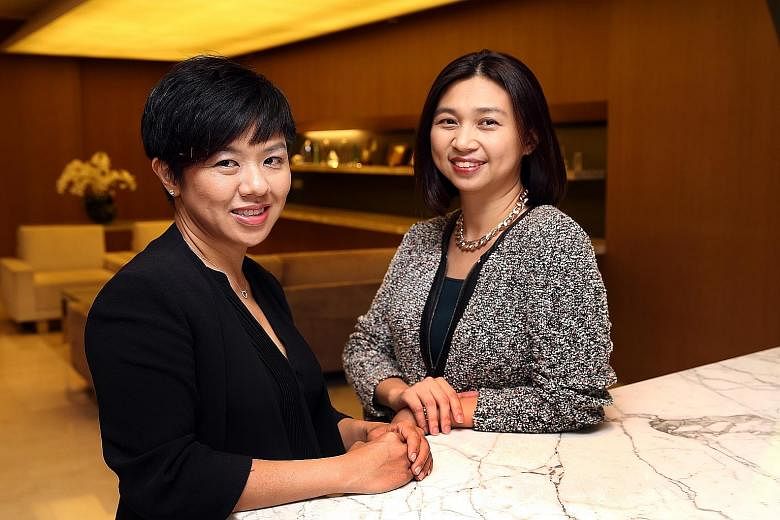Hiring and firing used to be a straightforward affair in Singapore, legally speaking. But lawyers here say that over the past decade, employment law has become increasingly sophisticated.
Law firms have been expanding their employment practices to meet a rising demand for litigation, bolstered by tighter labour controls, the influx of foreign talent, and Singapore's growing popularity as a regional human resource headquarters.
WongPartnership lawyers Jenny Tsin and Vivien Yui have seen their firm's employment practice grow in seven years from two specialist lawyers to more than 12 now. The firm joined the Employment Law Alliance, the world's largest network of labour and employment lawyers, in September as its sole Singapore member.
Ms Tsin said that regulatory changes in recent years, such as the toughening of penalties in the Employment of Foreign Manpower Act in 2012, have meant clients are seeking more in-depth legal advice. Employees are also less passive, she added. "This has led to more employment-related litigation."
The trend has not escaped the notice of international legal ranking guides such as Chambers and Partners and The Legal 500, which created separate ranking sections for employment law in Singapore, based on reader demand. Chambers started the new section last year. Its Asia-Pacific editor Shi-Ning Koay said: "We've seen international firms devote resources to building up employment practices, especially because their clients are using Singapore as a hub to coordinate pan-Asia employment and HR issues."
With this comes more foreign employees in senior positions - and when it comes to sacking them, they are less likely to go quietly.
Baker & McKenzie.Wong & Leow principal Celeste Ang said senior expatriates tend to be more litigious, as they may be used to greater employee protection in their own countries. Firing expats is often trickier than it looks because they could have multiple contracts, she added. For instance, an American expat employed by a Japanese firm, based at its Singapore subsidiary, and later seconded to the China office, could have contracts in all these different countries.
Said Ms Ang: " It's becoming quite a complex area of law... as a result of talent being so mobile nowadays."
In addition, some lawyers feel the courts have become more "pro-employee" in recent years. Mr Ian Lim, who heads TSMP Law Corporation's employment and labour practice, cited a landmark High Court decision in August when a retrenched Hewlett-Packard employee won a $627,000 payout for outstanding incentive compensation.
He added that the new Employment Claims Tribunal, which the Manpower Ministry will set up in the first quarter of next year, is likely to further accelerate the growth of demand for the practice. The tribunal will give professionals, managers and executives who earn over $4,500 a month and are therefore not covered by the Employment Act a quick and affordable avenue to resolve their salary disputes.
Mr Lim said the tribunal would "heighten the need for employers to have in place soundly drafted and structured employment contracts, handbooks and policies and receive good advice on disputes", all of which they would need employment lawyers for.
WongPartnership's Ms Yui said: "Employment law is a difficult area of law... We are always mindful of the emotions and human angle behind it."
- Additional reporting by Toh Yong Chuan

